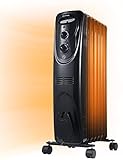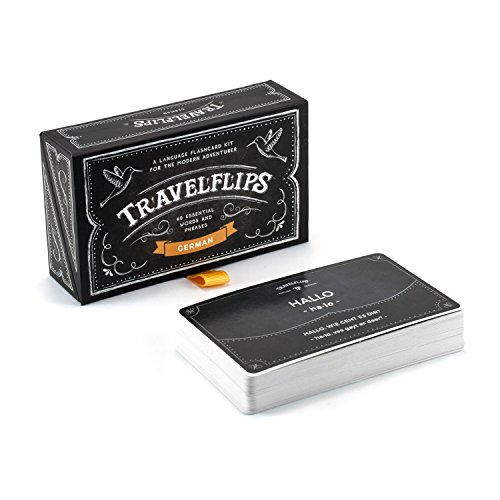
In the realm of home heating, there exists a breed of appliances that radiates warmth and coziness while standing the test of time. These versatile contraptions, operating on an innovative oil-based technology, are more than just ordinary heaters – they are a testament to endurance. Dive into the fascinating world of oil-filled heaters and uncover the remarkable longevity concealed within their sturdy exterior.
Imagine a universe where the passage of time has minimal effect on the performance of heating devices. These remarkable creations, equipped with a cutting-edge fluid-based mechanism, possess the capacity to persistently emit a comforting heat without fading away. By harnessing the power of natural convection, these oil-powered heaters confidently stand their ground as reliable and long-lasting household companions.
Beyond the realm of traditional heating systems, oil-filled radiators beautifully amalgamate aesthetics and functionality. With their sleek and sophisticated construction, these appliances effortlessly blend into any living space, effortlessly enhancing the ambiance while ensuring the longevity most other warmers can only dream of. By choosing an oil-filled heater, you indulge yourself in an investment that transcends mere warmth, intertwined with longevity and style.
The Lifespan of Oil Filled Heaters: A Comprehensive Guide
Understanding the duration of performance for oil filled heaters is essential for homeowners seeking a long-term heating solution. This comprehensive guide aims to provide valuable insights and information regarding the lifespan of these efficient heating devices.
When it comes to the longevity of oil filled heaters, various factors come into play. While each heater’s lifespan may differ depending on its quality, maintenance, and usage patterns, it is generally determined by the quality of its components and construction.
A crucial aspect to consider is the quality of materials used in manufacturing. High-quality oil filled heaters are typically designed with durable elements, such as corrosion-resistant steel, that can withstand prolonged usage without compromising their performance.
Another significant factor affecting the lifespan of these heaters is regular maintenance. Regular cleaning of the heater’s fins and keeping the unit free of dust and debris can help prolong its efficiency and lifespan. Additionally, checking and replacing any worn-out or damaged components, such as the thermostat or heating element, can significantly contribute to extending its overall durability.
The frequency and duration of usage also play a role in determining the lifespan of oil filled heaters. While these heaters are designed to operate for extended periods, excessive usage without proper cooling periods can put strain on the device and potentially reduce its lifespan. It is crucial to follow the manufacturer’s recommendations regarding usage time and to provide necessary rest intervals for optimal performance.
Furthermore, the environment in which the heater operates can impact its lifespan. Excessive exposure to humidity or moisture can lead to corrosion and deterioration of the heater’s internal components. It is important to place the heater in a suitable location that is free from moisture and has proper ventilation to promote longevity.
In conclusion, the lifespan of oil filled heaters depends on the quality of materials, regular maintenance, appropriate usage, and the operating environment. By considering these factors and taking necessary precautions, homeowners can ensure the longevity and efficiency of their oil filled heaters, providing reliable heating for years to come.
Factors Affecting the Lifespan of Immersed-Fluid Heating Devices
Enhancing the durability of immersed-fluid heating devices involves various critical elements that influence their overall lifespan. Understanding these key factors can assist in optimizing the performance and longevity of these appliances without compromising their efficiency. By considering aspects like maintenance, operational conditions, and usage patterns, users can prolong the operational life of their immersed-fluid heaters and ensure their continued effectiveness.
- Maintenance: Regular cleaning and proper maintenance play a significant role in maximizing the lifespan of oil immersed heaters. Removing dust and debris from the surface of the device, checking and replacing any worn-out parts or components, and ensuring adequate ventilation can all contribute to its long-term functionality.
- Operational Conditions: Factors such as ambient temperature, humidity levels, and ventilation in the installation area can impact the longevity of oil immersed heaters. Ensuring the device operates within suitable conditions, avoiding extreme temperature fluctuations, and providing proper ventilation can help prolong its operational life.
- Usage Patterns: Understanding and controlling usage patterns is crucial in extending the lifespan of immersed-fluid heating devices. Avoiding excessive or continuous usage, alternating heating cycles, and practicing energy-efficient habits can prevent overworking the device and ultimately extend its overall lifespan.
- Quality of Components: Investing in high-quality components during the initial purchase significantly affects the durability of oil immersed heaters. Components such as heating elements, thermostats, and insulation materials should be constructed using reliable and long-lasting materials to ensure optimal performance and longevity.
- Proper Installation: Ensuring proper installation and positioning of the immersed-fluid heater is essential for its longevity. Following the manufacturer’s guidelines, considering safety precautions, and avoiding any potential obstructions or physical damage can contribute to the extended lifespan of the device.
By accounting for these critical factors, users can enhance the longevity of their immersed-fluid heating devices, allowing for efficient heating performance over an extended period. Implementing proper maintenance practices, being mindful of operational conditions and usage patterns, opting for high-quality components, and ensuring correct installation can all contribute to the lifespan and effectiveness of oil immersed heaters.
Tips for Prolonging the Lifespan of Your Oil-Filled Heater
Ensuring the longevity of your oil-filled heater is crucial for its efficient performance and durability. By following some simple maintenance practices and adopting certain habits, you can extend the lifespan of your heater and enjoy its benefits for a longer period of time.
1. Regular Cleaning and Dusting
To keep your oil-filled heater running smoothly, regularly clean and dust its surface. Accumulated dirt and dust can hinder the heater’s performance by obstructing heat flow and reducing efficiency. Use a soft cloth or a brush to gently wipe off the dust and debris. Avoid using water or any cleaning agents, as they may damage the heater.
2. Proper Placement and Ventilation
Ensure that you place your oil-filled heater in an area with sufficient ventilation. Avoid placing it in closed spaces or corners, as this can restrict airflow and potentially overheat the device. Keep the heater at a safe distance from furniture, curtains, and other flammable objects to prevent any fire hazards.
- Place the heater on a stable and flat surface to prevent accidental tipping.
- Avoid placing any objects on top of the heater, as it may obstruct airflow and affect its performance.
- Keep the heater away from water sources and moist areas to prevent any electrical damages.
3. Regular Inspections and Maintenance
Periodically inspect your oil-filled heater for any signs of damage or wear and tear. Check the power cord and plug for any frays or exposed wires. If any components are damaged, refrain from using the heater and have it repaired by a professional technician.
- Inspect the heater’s safety features, such as the tip-over switch and overheat protection, to ensure they are functioning properly.
- Listen for any unusual sounds or vibrations while the heater is in operation. Unusual noises may indicate internal issues that require maintenance.
- Refer to the manufacturer’s instructions for any specific maintenance requirements and schedules.
By following these tips and practicing regular maintenance, you can significantly prolong the lifespan of your oil-filled heater, ensuring its efficient performance and providing warmth and comfort for years to come.
Signs that Indicate It’s Time to Replace Your Oil Filled Heater
Knowing when to replace your oil filled heater can save you from potential safety hazards and ensure efficient heating in your space. Although these heaters are known for their durability and long lifespan, there are certain warning signs that indicate the need for a replacement. Recognizing these signs will help you take prompt action and avoid any inconvenience caused by a malfunctioning heater.
1. Inconsistent Heating:
If you notice that your oil filled heater is no longer providing consistent or adequate heat, it could be a clear indicator that it needs to be replaced. Uneven distribution of heat or a noticeable decline in warmth can suggest various internal issues with the heater, such as problems with the heating element or thermostat.
2. Strange Noises or Smells:
Unusual noises or odors emitted by your oil filled heater should not be ignored. Any buzzing, rattling, or clanking sounds could be a sign of loose parts or a malfunctioning motor. Additionally, if you detect any unusual smells like burning or a strong oil odor, it might indicate a potential electrical or oil leakage problem, requiring immediate attention.
3. Increased Energy Consumption:
Another sign that your oil filled heater may be reaching the end of its lifespan is a noticeable increase in energy consumption. If you notice a significant rise in your energy bills despite regular usage patterns, it could indicate that your heater is no longer operating efficiently and is consuming more energy than usual.
4. Age of the Heater:
The age of your oil filled heater is an essential factor in determining whether it needs replacement. While these heaters are known for their long lifespans, typically ranging from 8 to 20 years, older models may become less efficient over time and require replacement to ensure optimal performance and safety.
Recognizing these warning signs will help you avoid potential hazards and ensure that your oil filled heater continues to provide a comfortable and safe heating experience. It is crucial to regularly inspect and maintain your heater and replace it promptly when necessary to ensure the well-being and comfort of your space.
FAQ
How long can I expect my oil filled heater to last?
The lifespan of an oil filled heater can vary depending on several factors such as the brand, quality of construction, and frequency of use. However, on average, these heaters can last anywhere from 10 to 20 years with proper maintenance and care.
What kind of maintenance does an oil filled heater require?
An oil filled heater requires minimal maintenance. However, it is important to regularly check for any leaks or signs of damage. Additionally, it is recommended to clean the heater’s surface and fins periodically to prevent dust buildup. Proper storage during the off-season can also help prolong its lifespan.
Can an oil filled heater overheat and become dangerous?
While oil filled heaters are designed with safety features to prevent overheating, it is still important to use them responsibly. Always ensure proper ventilation and never cover the heater while in use. Additionally, using the heater within its recommended wattage and avoiding any modifications to the unit can prevent potential overheating risks.
Are oil filled heaters energy efficient?
Oil filled heaters are generally considered to be energy efficient. They provide a steady and consistent heat output, which can help reduce overall energy consumption compared to other types of electric heaters. However, it is important to choose a heater with a thermostat and timer function to optimize energy efficiency and prevent unnecessary energy usage.










